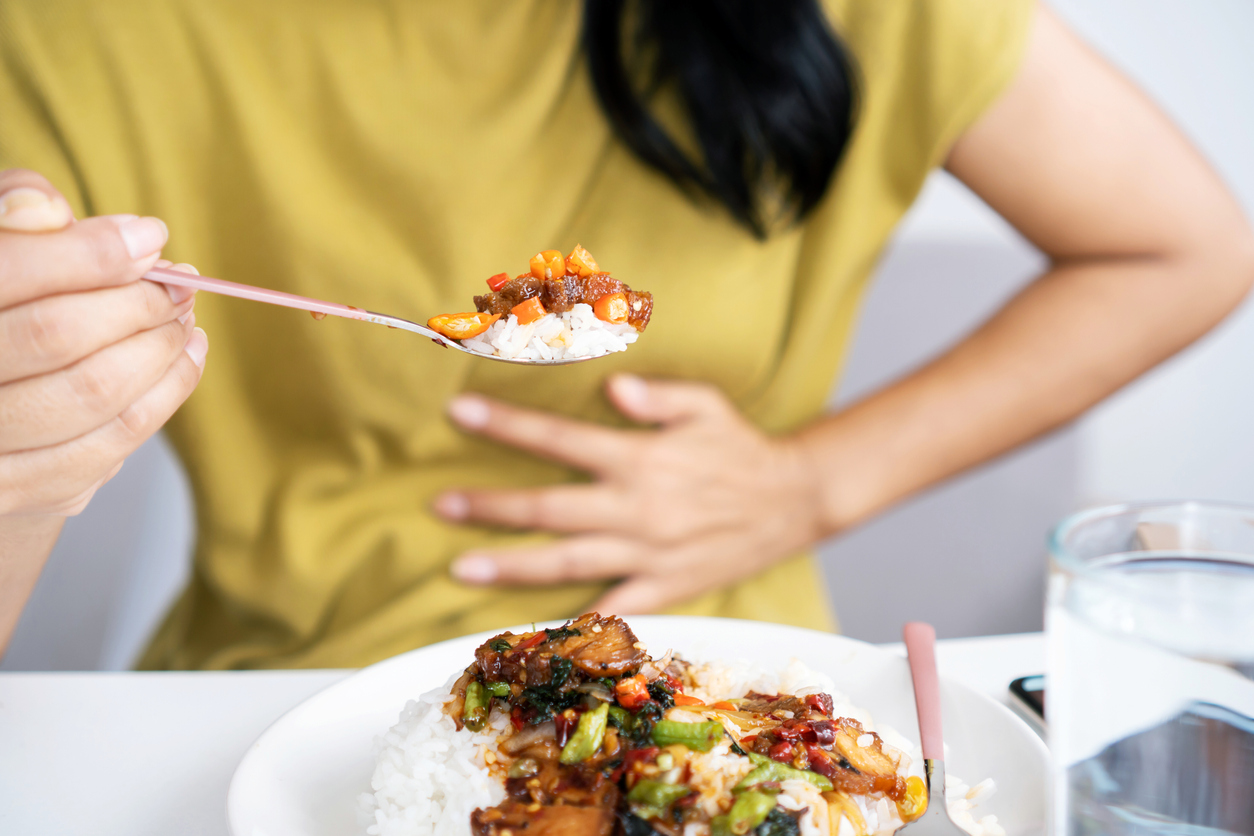
We all have moments when something we’re eating or drinking goes down the “wrong pipe,” throwing us into a coughing fit. “Swallowing food, even liquids or our own saliva, is a very, very complex process, and at every step of that process — and there are a lot of them — errors can happen, resulting in a variety of symptoms,” Brian Riff, MD, a gastroenterologist and director of endoscopy at Associated Gastroenterology Medical Group in California, told POPSUGAR. Coughing is a natural response when something goes wrong in this process. It’s your body’s way of preventing foreign particles like bacteria, food, and gastric acid from entering the lungs.
When should you be concerned if you're coughing after eating?
If you find that you frequently cough after eating, it could be a sign of an underlying condition, rather than a natural reflex. One of the most common causes is gastroesophageal reflux disease (GERD), Dr. Riff explained. For people with GERD, acid can come back up from the stomach, into the esophagus, and spill over into the trachea, triggering a cough. Heartburn (the feeling of acid coming back up the chest), a sore throat, and hoarseness are also common symptoms of GERD.
While coughing after eating could point to GERD — or in some cases, dysphagia, a difficulty of swallowing — it isn’t always a major cause for concern. Some particles and ingredients can stimulate our cough centers, producing a cough reflex, Dr. Riff noted.
How spicy foods play a role in coughing after eating

It should come as no surprise that spicy foods are one of the most common culprits, because of the ingredient capsaicin.
Capsaicin is a naturally occurring compound found in chili peppers that is responsible for their spicy or hot sensation. When consumed, capsaicin can irritate the respiratory tract, particularly the throat and airways. This irritation triggers the body's natural defense mechanism, leading to coughing as an attempt to clear the airway and alleviate the discomfort caused by the spicy sensation.
Additionally, foods high in citric acid (like lemons and limes), as well as acetic acid (found in things like vinegar or pickled vegetables), have also been proven to tickle our cough centers.
Though giving up your favorite foods is never fun, paying attention to your diet can help eliminate your post-meal cough.
How else can you prevent coughing after eating?
Here are some tips for preventing coughing after eating:
- Eating slowly: Taking your time while eating can help prevent coughing.
- Sitting up straight: Maintaining good posture during meals can contribute to a reduced risk of coughing.
- Taking small sips of water between bites: Drinking water intermittently while eating can help alleviate the likelihood of coughing.
The bottom line
If you have already tried the above methods to no success, or are worried about your cough being a sign of a more serious condition, it is advisable to seek medical advice from your doctor, as suggested by Dr. Riff.
Schedule an appointment with one of the ENT doctors in Houston at Texas ENT Specialists today to learn more.

